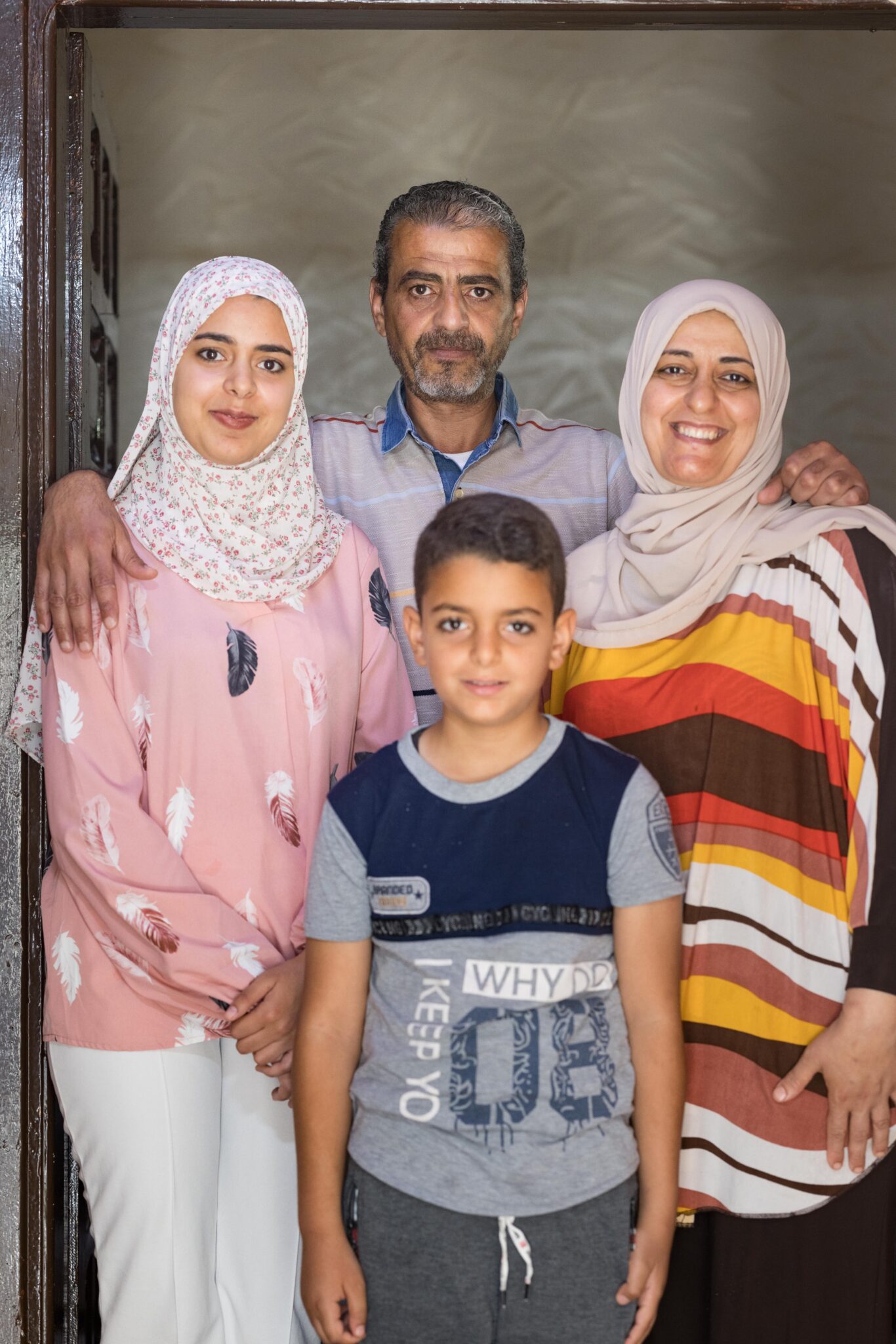
02 Nov Maysa’s story: Home is Family Around the Table – By Joy Mazahreh
Photographing for Jira – Capturing Grace on a journey through Jordan
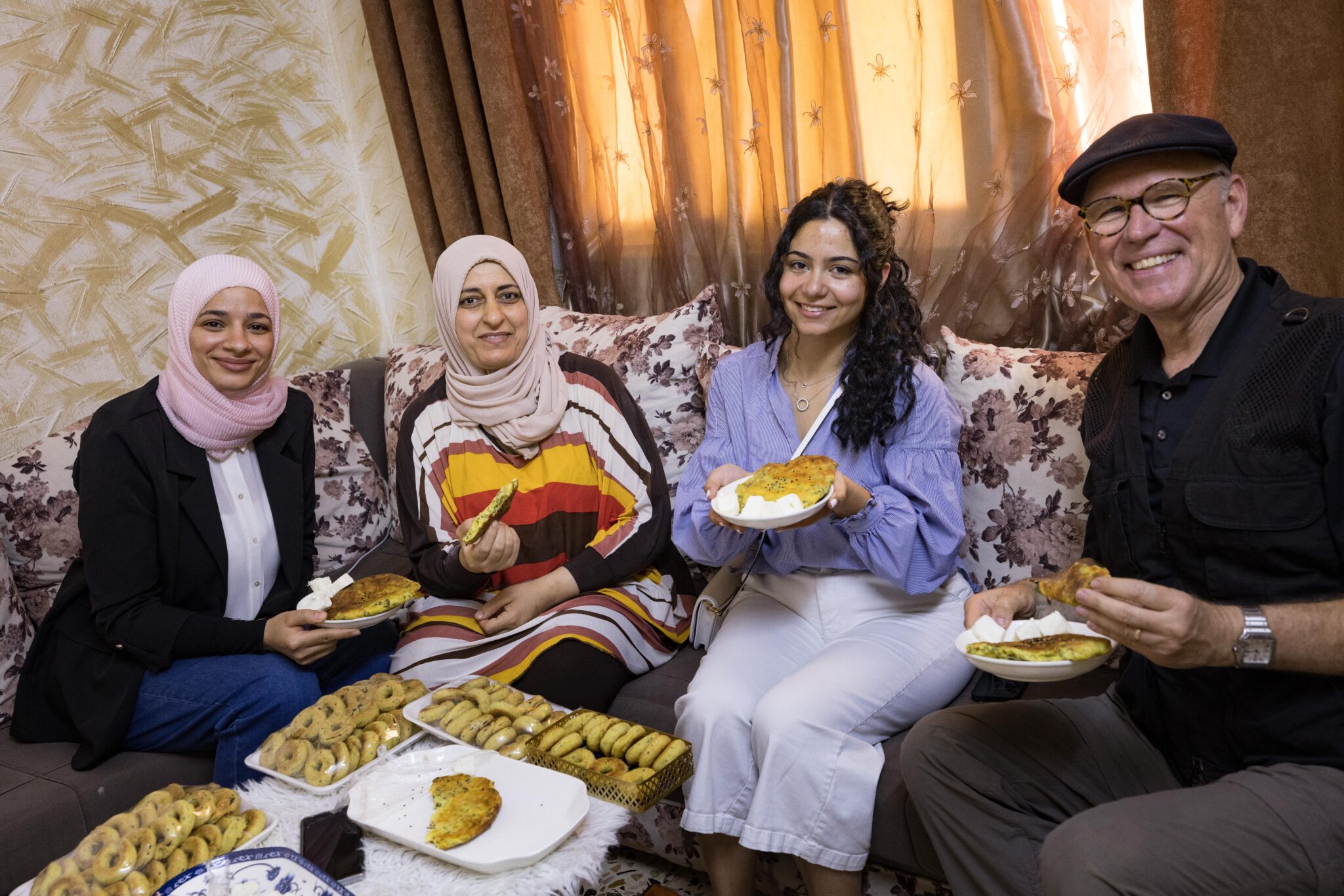
Recently I had the privilege of working with Joy Mazahreh in the country of Jordan. Joy conducted interviews with refugee families while I photographed. I am now so excited to share Joy’s stories on my blog from our time with JIRA. I am so grateful to call Joy my Capturing Grace partner, and I know that you will be inspired by her story as well as her writings. – Ronnie
War can take away so many things we take for granted. It does not let us know when is the last time we are going to be doing the things we love, no matter how small. War steals someone’s walk to class, a person’s favorite view from their balcony, another’s favorite song on the radio as they drive to work everyday, or someone’s small talk with the cashier everytime they grab something at the grocery store in the neighborhood.
For Maysa, it was the taste of her father’s dishes. Before the Gulf War in the 90s, around 400 thousand Palestinians, Like Maysa, lived in Kuwait after being forced to leave Palestine in 1948. During and after the Gulf War, most of them left in fear of persecution, abuse, and economic burdens. Maysa left Kuwait with her family and settled in Rusaifeh, Jordan, around 40 minutes outside of Amman.
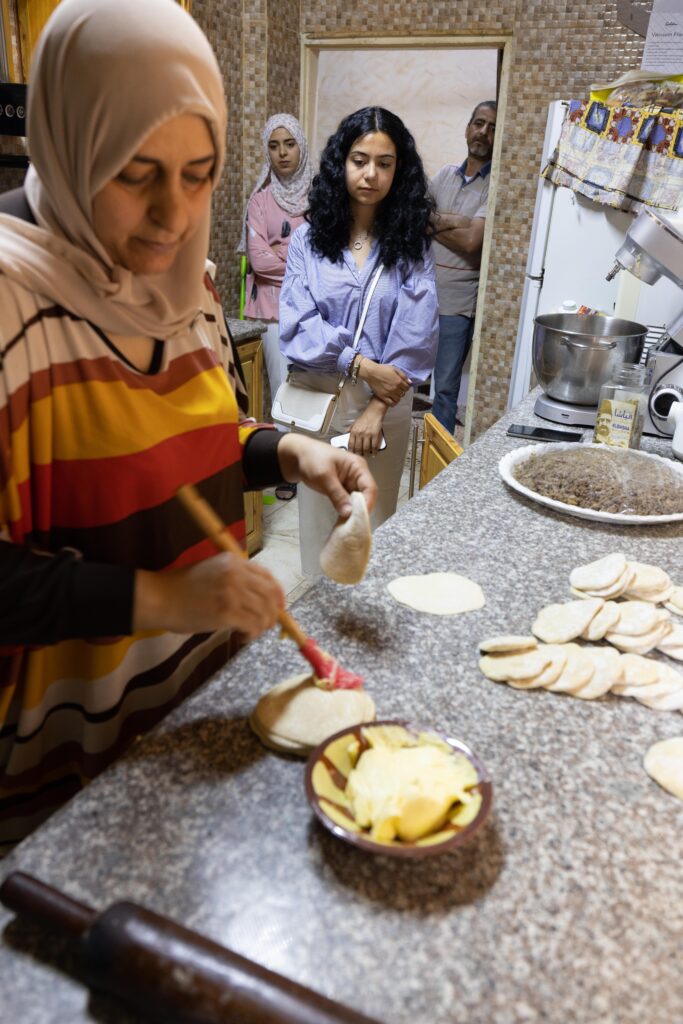
Maysa’s family had a hard time adapting to their new home in Jordan. Although her father was a well-known chef in Kuwait, no one welcomed him or offered him a job in his new town. Yet, he continued to cook the meals that reminded him of home in his family’s new kitchen. The food managed to reach other families in the neighborhood who also happened to be other Palestinians who were part of the exodus. Without a doubt, they really liked the food because it reminded them of the home they have longed for.
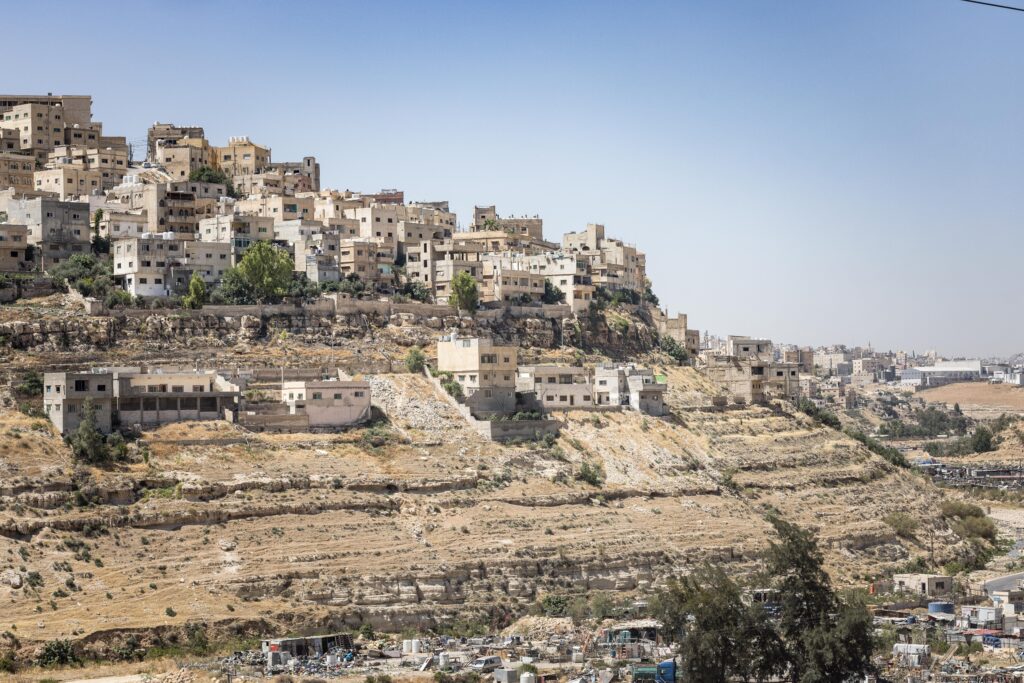
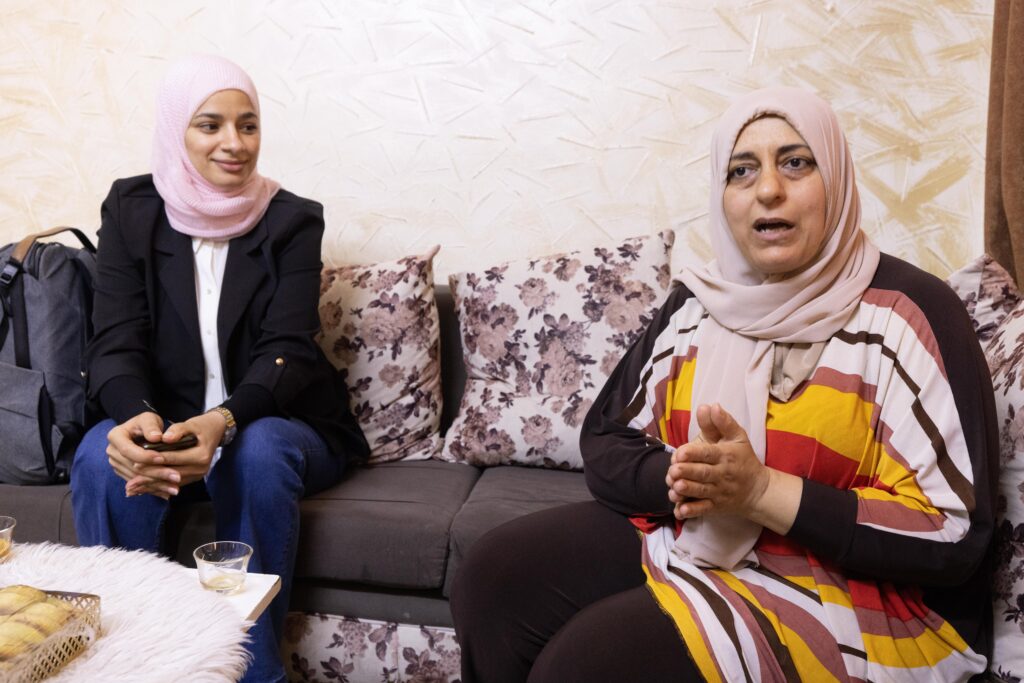
Maysa took on her father’s passion and also cooked food that reminded her of home. The families in the neighborhood encouraged her to start her own business and be self-sufficient. In her living room, one of the stations where all the magic happens, Maysa told us her story:
“I stopped cooking when I was pregnant but I could not leave my passion for cooking go to waste, people could not leave my food either, alhamdulillah (Thank God).”
So, Maysa started preparing frozen meals for families in the neighborhood. Then, during COVID, when people started missing foods they used to order from restaurants, Maysa started cooking ready-to-go meals as well. In Ramadan (the holiest month for muslims, when they fast daily then gather around a big meal to break the fast at sunset), Maysa’s friend hooked her up with JIRA through Facebook.
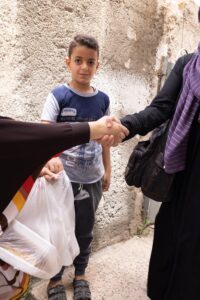
JIRA, a local nonprofit, works closely with refugees and underprivileged Jordanians to support their projects and small businesses by providing them with financial aid and necessary training for marketing, business management, and leadership.
After multiple visits to Maysa’s house to meet her and her family, JIRA sought to support Maysa’s passion by mainly providing financial support as well as kitchen appliances. Believing in her project, JIRA turned one person’s passion into the main source of income for a family of five.

Most of the meals Maysa prepares are usually made at professional kitchens, yet Maysa is able to accomplish it all in her house. She prepares the food in the morning in her small kitchen, finishes cooking the meals in the oven outside her house, and does the finishing and the packaging on the coffee table in her living room. Maysa’s family is very supportive.
Although she has five children to take care of with her husband and many responsibilities and bills to take care of, they are all committed to the tasks she asks them to do in support of her work. Maysa’s husband, Abu Yaser, prepares the dough at sunrise, Yaser, her eldest, helps her with packaging, and her youngest, Omar, delivers the packages to the customers–a transaction we had the delight of witnessing during our time with them.
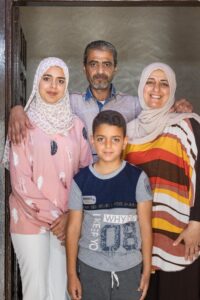
My favorite thing about Maysa is how hardworking she is. While she is talking to me about the food she makes, she is also translating what she can to Ronnie in English, calling on her daughter to turn the stove off in the kitchen, and answering customers’ calls and taking their orders.
Yet, her passion for cooking is hard to miss. Amidst all she is doing and saying, she would reiterate, “I love cooking, I cannot help but give my best.” Or she says, with a laugh, “They tell me my soul appears in the food!”
(“Soul appears in food” is a popular saying to describe people passionate about cooking and to describe how their delicious food is made with love.)
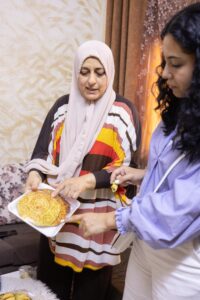
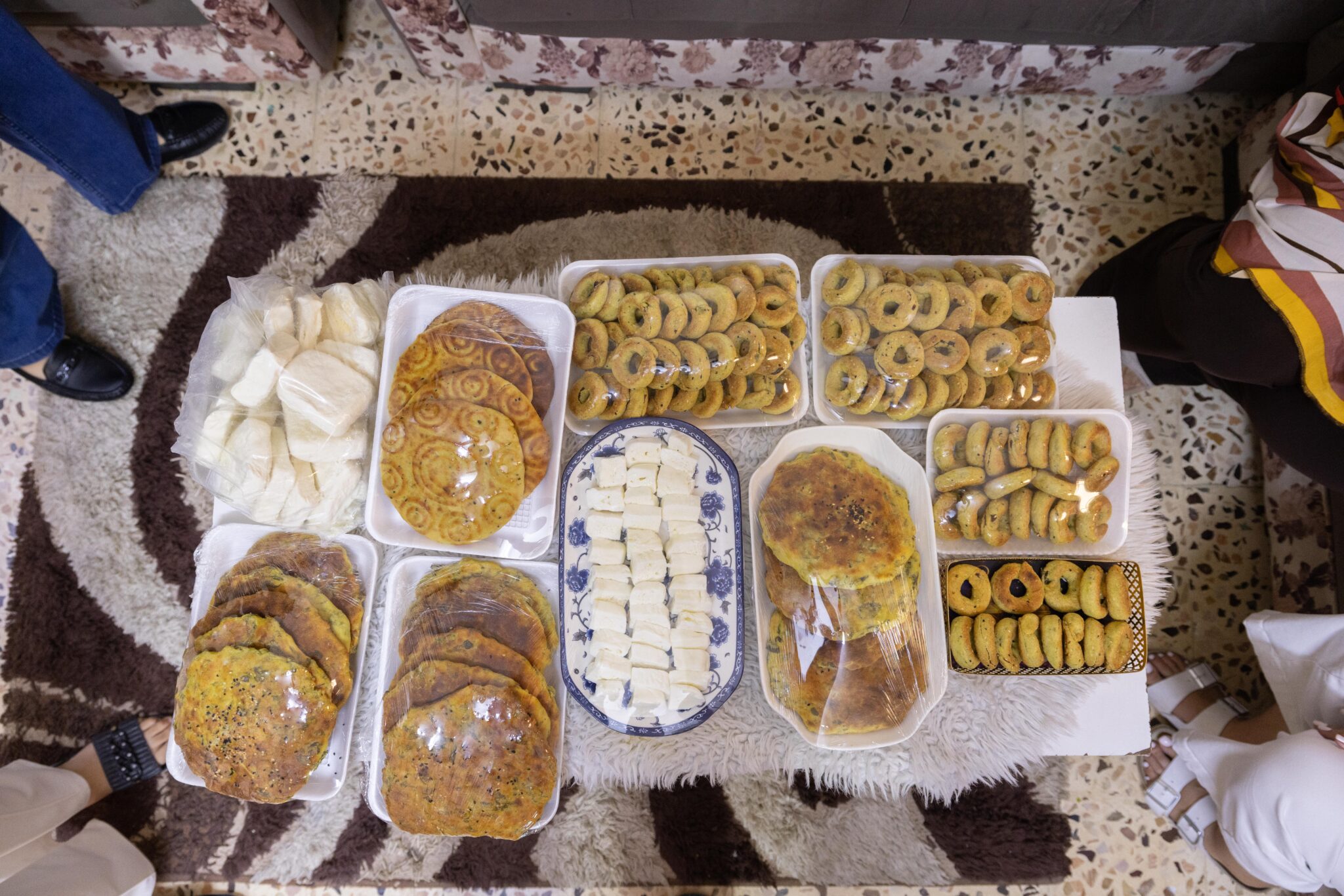
On the coffee table, Maysa has already prepared a beautiful display of traditional Palestinian foods and pastries. Ronnie and I were amazed at how artistic the food looked. For me, food is Maysa’s way of expressing what home means to her. If other people express similar ideas in writing, photography, or painting, Maysa does so in her cooking.
I knew I was right about Maysa’s connection between food and home when I asked her, “What is home to you?”
She replied: “Home for me is family around the table. Food is what brings the family together. Before we start our day, we all have breakfast together. If one of us doesn’t want to eat, we skip the meal until everyone is hungry and ready to share the meal together. I had to learn this the hard way when the war interrupted my favorite family time–there is nothing better than sharing a meal together.”
Maysa’s connection between food and home made her expand the cuisines she cooks. Now she cooks a little piece of home for every customer. She does not only make Palestinian food, but also Jordanian, Syrian, Egyptian, Iraqi, and Turkish foods as well. The universality of the food Maysa cooks did not become obvious to me until we entered the kitchen. As we watched Maysa prepare some pastries, Ronnie remarked on the similarities between what she was preparing and Ukrainian pastries. What a small world! There is so much that brings us together rather than separates us.
“Love is an important ingredient in food,” Maysa said. “I am so thankful for my friend who helped me work with JIRA that I gave her a gift to say thanks.” She continued, “I am friends now with most of my customers, we share gifts and visits as well.”
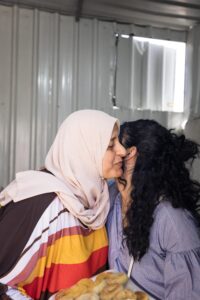
Maysa’s story is an encouragement to other families around her to open their own businesses too, to be self-sufficient and to build a better future for them. The small kitchen is now a big project that provided job opportunities to other women in the camp. They are trained to cook there. Now, after years of hard work, encouragement, and support from JIRA and the local community, Maysa’s family has the biggest kitchen in Rusaifa.
This story would have not been possible without JIRA and their support to this family. JIRA dealt with the families’ inheritance of loss due to war and gave them a future of hope by supporting their connection to home and doing what they love. What seemingly appears financial or educational in terms of JIRA’s support actually is deeper and more meaningful in the way it allows many families like this one to be able to confront their memories and feelings through what they do. I am very thankful for JIRA, David Rihani, and Jude for what they have done for so many of these families in Rusaifeh, Hiteen Camp, and the Jordanian Desert. – By Joy Mazahreh
About JIRA
JIRA works to achieve its goals and objectives in cooperation with a group of public and private companies and with the efforts of individuals and volunteers. Together, we promote the values of positive change in society and plant seeds of peace and goodness — promoting the various components of Jordanian society to achieve sustainable development.
The company seeks to present creative ideas in society for social change and merging groups by spreading social peace and sparking the culture for dialogue in Jordanian society.
We aim to improve economic conditions, empower women, and market the product in the capital. In Amman, the capital of Jordan, we offer youth training and cultural projects and work specifically with equipping and empowering girls. We teach concepts of social responsibility and sustainable development and support for economic and political empowerment. We also work to refine and develop the skills and experiences of individuals in the local community through self-development programs. We aim to develop a mindful generation who is capable of participating in public life and making strategic decisions, thereby improving their own lives and the community as a whole.




No Comments